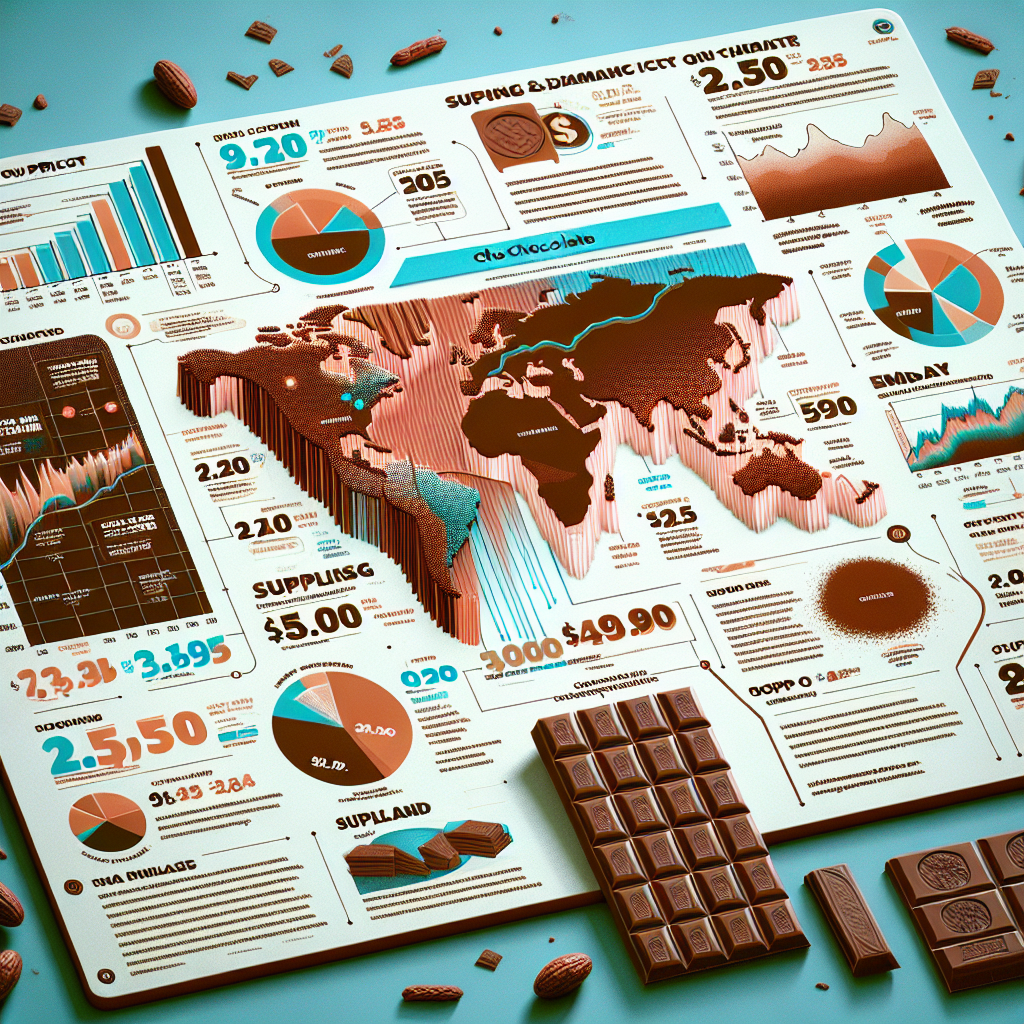The Rising Cost of Chocolate: Unwrapping the Reasons Behind the Price Hike
The Rising Cost of Chocolate: Unwrapping the Reasons Behind the Price Hike
Introduction
Chocolate lovers worldwide are facing a bittersweet reality as the cost of their favorite treat continues to climb. This summary delves into the factors driving the price increase, offering insights into the complex dynamics of the chocolate industry.
Key Factors Contributing to the Price Hike
1. Climate Change and Its Impact
Climate change is significantly affecting cocoa production, leading to reduced yields and increased costs.
- Unpredictable weather patterns disrupt cocoa farming.
- Rising temperatures and changing rainfall patterns affect cocoa tree health.
2. Supply Chain Challenges
Global supply chain disruptions have exacerbated the situation, impacting the availability and cost of chocolate.
- Transportation delays and increased shipping costs.
- Labor shortages in key cocoa-producing regions.
3. Economic Factors
Economic pressures are also playing a role in the rising cost of chocolate.
- Inflation affecting raw material and production costs.
- Currency fluctuations impacting international trade.
Industry Response and Consumer Impact
1. Adaptation Strategies
Chocolate manufacturers are adopting various strategies to cope with these challenges.
- Investing in sustainable farming practices.
- Exploring alternative ingredients and formulations.
2. Consumer Choices
Consumers are feeling the pinch and adjusting their purchasing habits accordingly.
- Opting for smaller quantities or less expensive brands.
- Increasing interest in ethical and sustainable chocolate options.
Conclusion
The rising cost of chocolate is a multifaceted issue driven by environmental, logistical, and economic factors. As the industry adapts to these challenges, consumers are also adjusting their preferences and purchasing behaviors. Understanding these dynamics is crucial for stakeholders across the chocolate supply chain.






































